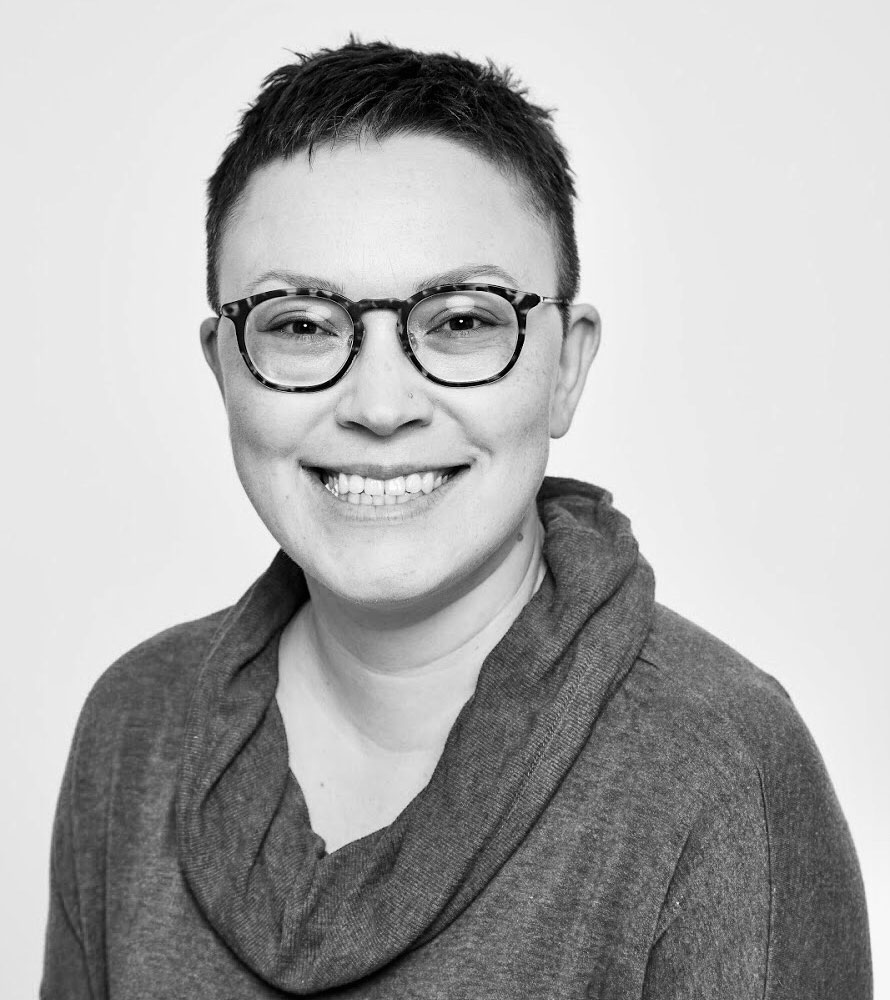

Katya Yefimova used to drive to a library branch across town just to browse Russian-language books on the shelves. Seattle traffic couldn’t deter the University of Washington Information School (iSchool) PhD candidate from her mission: Connecting her young daughter to her family’s language and heritage.
Yefimova knows first-hand that public libraries play an important role in the lives of immigrant and refugee families. This perspective underlies her commitment to making libraries more accessible to the increasingly diverse communities they serve. Over the past two years, Yefimova has brought this commitment to several TASCHA projects.
Bridging research and practice
Yefimova’s journey with TASCHA began in the fall of 2019, when she joined her co-advisor, Negin Dahya, Affiliate Assistant Professor at the iSchool, and TASCHA researchers Stacey Wedlake and Maria Garrido to develop a successful grant proposal for the Refugee Women and Technology Education Project. The researchers wanted to learn about technology education opportunities available to refugee women in Seattle and King County.

Yefimova spent that year working as a research assistant on the project, interviewing practitioners from refugee-serving organizations and women who came to Seattle as refugees, analyzing data, and planning a workshop to share research findings.
“Being in graduate school, I live in a certain bubble, and this work really took me out of my bubble. I had the opportunity to speak with people that I don’t get to speak to on a regular basis,” she said. “I’m also really interested in working with practitioners, so I feel excited when I have a chance to bridge the gap between academics and practitioners. That’s something I really love about working with TASCHA – seeing the different ways that people work and collaborate with the public sector, nonprofits, and libraries.”
The following academic year brought more opportunities to connect research and practice, as Yefimova joined the Community Labs in Public Libraries project, working with Information School Professor of Practice Rolf Hapel to explore how public libraries address misinformation. One of the goals of the study was to bring together librarians, researchers, and communities to co-design library programs.
“With her understanding of the importance of stakeholder and practitioner involvement in the research and her competencies in methods of design and engagement, Katya has been a tremendous asset for the project. Her energy, her social skills, and her ability not only to generate ideas but to transform ideas into action helps move the project forward,” Rolf said.

Rolf’s vision of the library as a community hub inspired Yefimova and helped her develop her own approach to her dissertation topic — understanding the library’s role in the civic life of immigrant and refugee communities.
“I want to learn more about how immigrants think of civic engagement — especially in a library setting — and peel back the assumptions behind the idea that immigrants are not active in their communities,” she said.
Libraries in the time of COVID-19
The COVID-19 pandemic hit just as Yefimova was mapping out her dissertation study. In-person workshops at the library, inspired by TASCHA’s Community Labs project, were no longer possible. Like many researchers working with people, Yefimova had to take her work online.
Libraries also found themselves in new territory as they began to offer public programs online. Yefimova was planning a virtual Russian-language storytime for local families when she saw that librarians all over the country were looking for similar resources. She teamed up with iSchool Beverly Cleary Professor Michelle Martin to coordinate a series of video chats for librarians who were just beginning to experiment with online programming.
“Few resources were available early in the pandemic, and I wanted to support librarians by creating a space to share ideas and learn together,” Yefimova said. “I really appreciate being able to contribute to the conversation in this way.”
These online meetings touched on issues well beyond the logistics of virtual programs — equity, the value of libraries, and the impact of the pandemic. The experience led Yefimova to collaborate with TASCHA researchers on a new project, looking at the long-term impact of COVID-19 on public library programming. The research team is currently conducting the first of three rounds of interviews with library staff across Washington State.
After completing her doctorate, Yefimova plans to work in the public sector, taking advantage of her experience working with libraries and immigrant communities.
She doesn’t know when she’ll get to flip through books on library shelves again.
“I don’t know what the library will look like post-pandemic, but I want to be part of the effort to reinvent it.”


